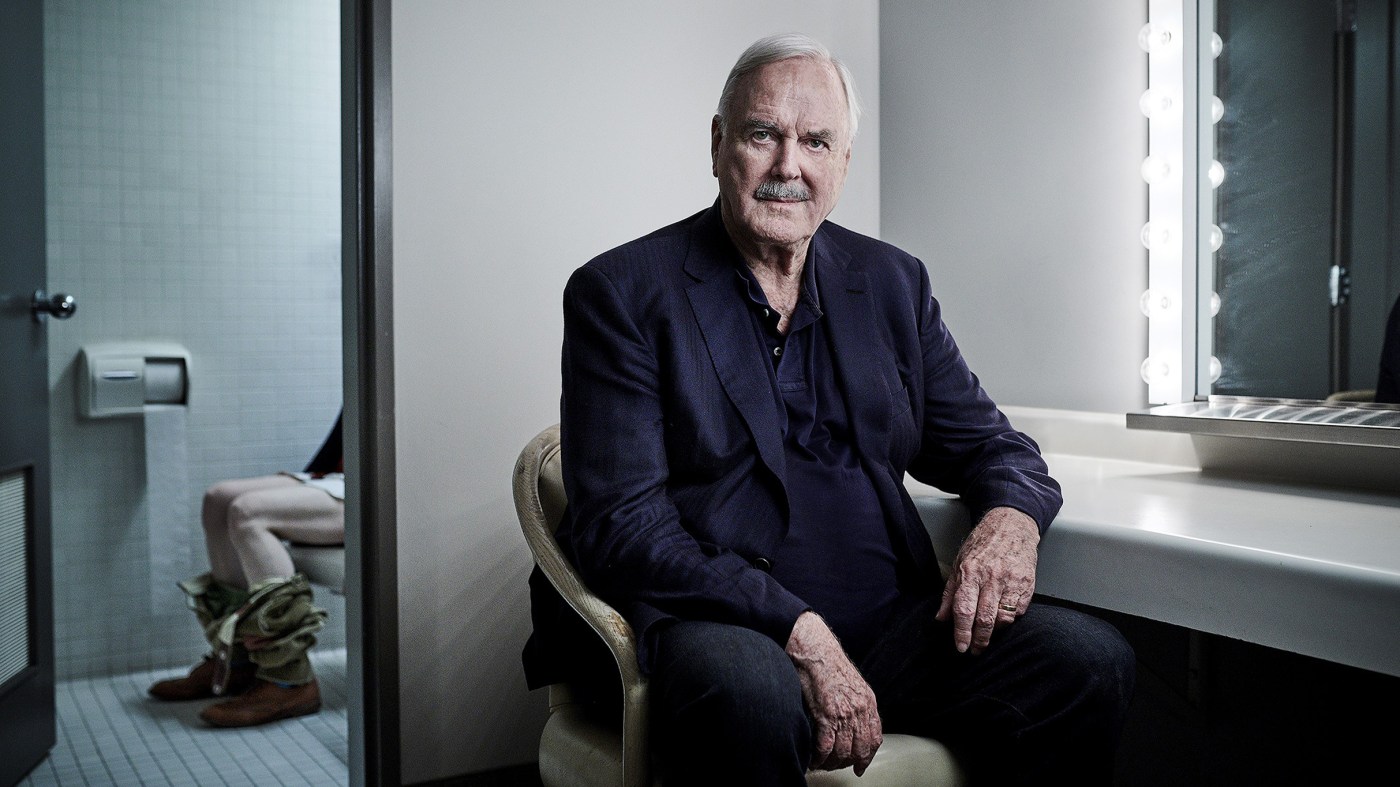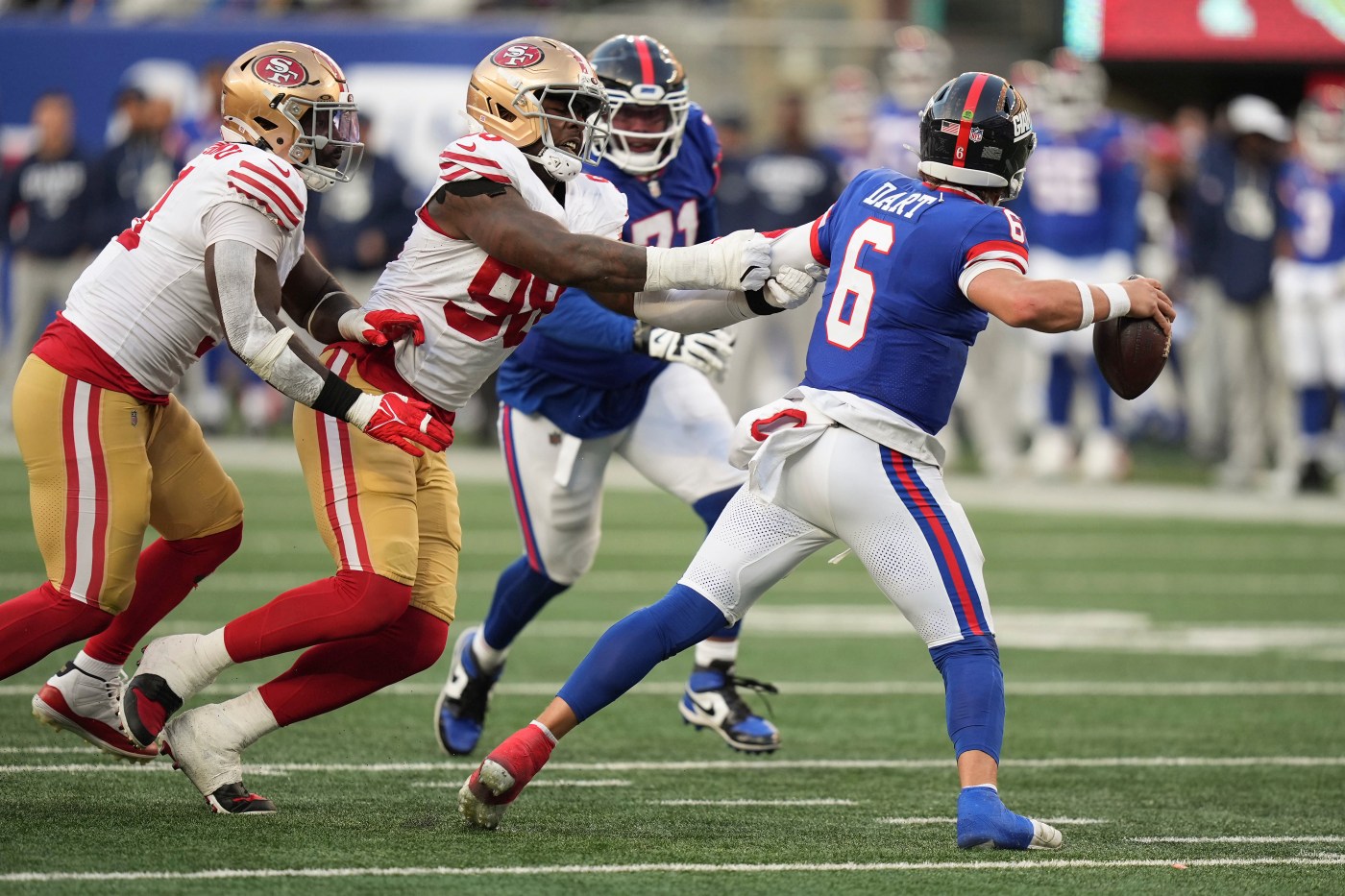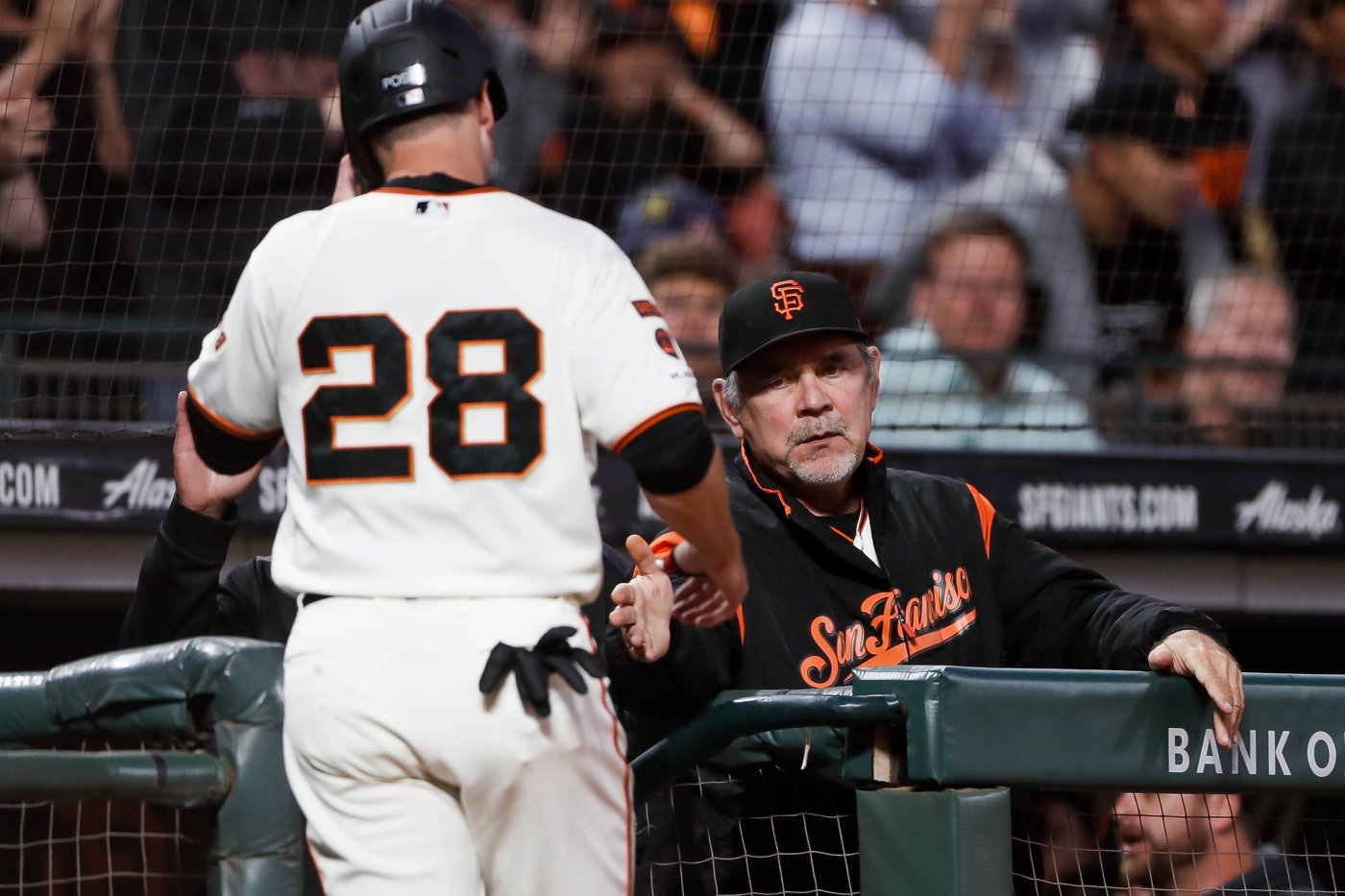John Cleese comes on the line to chat about his Not Dead Yet! tour, which comes to Southern California to celebrate the 50th anniversary of “Monty Python and Holy Grail,” but before we can ask our first question, he’s got one for us.
“I’m wanting to know if I’ve offended Anaheim,” Cleese says in a voice instantly recognizable to anyone who ever watched an episode of “Monty Python’s Flying Circus” or saw “The Holy Grail” or any of the Python troupe’s other films.
It seems the show is close to selling out in San Diego, Thousand Oaks and other stops around the country through October. But his San Jose performance at the San Jose Civic on Sunday, Sept. 14? Not yet.
“I’m wondering if I’ve offended them,” he continues tongue in cheek. “If I said something tactless about them, and now they’re taking it out on me. Do you have any advice?”
Related Articles
Fall films 2025: Here are 44 reasons to get excited
‘Weapons’ regains the top spot as the summer box office winds down
What to watch: Are ‘Honey Don’t!,’ ‘Relay’ worth a long-weekend look?
‘Honey Don’t!’ review: Margaret Qualley smolders in Ethan Coen’s neo-noir
Marilyn Monroe’s California home faces demolition in battle over landmarks
We suggest that calling us to get the word out is an excellent first step, and not just because it’s a thrill to speak to the man who played the irate owner of an ex-parrot in a classic Monty Python sketch, portrayed Lancelot the Brave, the Black Knight, a French taunter, and Tim the Enchanter in “The Holy Grail,” and created the unforgettable rude hotelier Basil Fawlty in the British TV sitcom “Fawlty Towers.”
“Good, because people like to laugh,” Cleese replies. “I’ve had a ‘Fawlty Towers’ stage show on in London for the last year or so, year and half, I think. And it’s wonderful to sit in my little box where I make a few notes about the performance and see the audience below rocking with laughter.
“I don’t mean just laughing, but literally rolling backwards and forwards in their seats,” he says. “You see their faces afterwards and they’re quite different from the people who came in, because they’re smiling at everyone.
“So what I would say is, ‘Come, you will enjoy it, and you’ll feel so much better afterwards.’ People neglect how healthy and good for us some positive laughter is, I guess.”
The current tour features a screening of “Monty Python and the Holy Grail,” followed by Cleese discussing the movie and its making and taking questions from the audience for more than an hour afterwards.
In an interview edited for length and clarity, Cleese talked about his ongoing defense of comedy that might offend, why “The Holy Grail” cast raced each other back to the hotel at the end of each day, and how his rude French soldier character who taunts King Arthur from a parapet still delights him today.
Q: For years now, you’ve argued against political correctness dictating what comedians and comedies can do.
A: There are some very sensible woke people. Inclusion, diversity, all that stuff, of course, of course. But there are a lot of them who don’t understand comedy. You see, all comedy is critical. You can’t laugh at anyone who’s perfect. All we laugh at is foibles.
That doesn’t mean that all laughter is cruel, because it depends on whether it’s done with affection or not. If it’s not done with affection, it’s nasty because the intention is to hurt a person’s feelings, not to make somebody laugh, and we must never do that. That is wrong.
But if you see people who know each other terribly well, they start teasing each other again when they haven’t seen each other for a minute. And they’re being slightly rude to each other, the whole point being that it’s in a context of affection.
This is something that the extreme woke people simply don’t understand, so they’re trying to stop us laughing when it’s one of the most healthy things we can do.
Q: You’d left “Monty Python’s Flying Circus” before its final season, but then came back with Graham Chapman, Eric Idle, Michael Palin, Terry Jones and Terry Gilliam for “The Holy Grail,” the first movie.
A: That’s right. I only did three seasons. I felt it was – I called it the sausage machine – and I felt we were repeating ourselves. The others didn’t feel that we were. But I loved the idea of moving onto film. The main thing to say, and this is absolutely true, is that we had no idea what we were doing. This is one quite interesting facet of it, the fact that we threw away 90 percent of the first script.
That’s kind of interesting, so I talk a bit about that [in the show], and I talk about the bit that, as usual, we couldn’t get financing. We had to go to the world of rock groups, what is it? Pink Floyd and Jethro Tull and some others, because nobody else would finance it. [Led Zeppelin also put money into the production.]
Q: I want to ask you about your main characters, Lancelot, Tim the Enchanter, the Black Knight, and the French taunter. Did you work on those with Graham [Cleese’s usual writing partner] or others?
A: Well, when we started, we didn’t know what it was going to be about. So we, Graham and I, started out just thinking of medieval things. The Black Knight [“Tis but a scratch!”] is not about the plot. It doesn’t advance the plot. It’s just part of the scenario.
Similarly, the scene with the Witch [Sir Bedevere: “So, why do witches burn?” Peasants: ” ‘Cause they’re made of … wood?”] and the French taunter [“Your mother was a hamster and your father smelt of elderberries!”].
They’re just funny scenes. They’re not essential to the plot. And we were writing all of those because we didn’t know what the plot was. Then, later on, when we knew what the plot was, we wrote a second taunter scene, which had something to do with the plot.
But it was all just random. It was a little bit like when we started doing [the 1979 movie] “Life of Brian.” I mean, Graham and I wrote the stoning sketch straight away, but we had no idea how it was going to fit into the film.
Q: The dialogue is so memorable, I’d imagine people quote it to you all the time.
A: That’s right. I have a doormat that I found that says, “Go away or I shall taunt you a second time.”
Q: What was it about this movie, of which you said you didn’t know what you were doing, that made it into this classic comedy?
A: Well, I think we knew what we were doing when we got onto the sketches. Because we’d all done a certain amount of perfectly successful stuff, a lot of it in or around David Frost. [The TV host’s satirical series “The Frost Report,” which employed as writers all of the pre-fame Pythons except for Terry Gilliam.] Five of us were on the writers’ table of David Frost, where we came up with a Python idea.
The director, who I was very fond of, used to say, “Very funny, boys, but they won’t get it in Bradford,” so that we would not pursue that particular idea. And what came along with Python was we did some sketches and discovered that there were enough people in Bradford.
So it wasn’t something we hadn’t done before, it was just that there was a filter on before that we took off. There was this explosion of energy. Because when you get rid of a lot of slightly old, fossilized rules, there’s a lot of energy underneath that suddenly released.
Q: As far as the physicality of making “Holy Grail,” that must have been hard, all those knights’ costumes, all that muck and grime.
A: Yeah, it was awful. I remember being damp. And I remember there was always a race when the assistant director said, ‘It’s a wrap.’ People raced, literally raced to the cars to try to get back to the hotel, because it was only enough hot water for about half of us. You had to get back first.
It was awful, but we were 30 or something, you know. But it was very tough going. The very first shot of the film, one of the gearings of the camera literally broke off and we had to sit there for four hours while they got another camera. I mean, it was not an auspicious start.
[His publicist interrupts to remind Cleese he’s got another call to do.]
Ask me something else because he’s always interrupting. Ask me something rude.
Q: OK, the French taunter is definitely rude. What are your favorite lines in that?
A: Oh, I love all that. It was a vague memory of the old sort of tales, of the Arabian Nights, those kinds of things. “May your mother die of the bites of 1,000 cattle fleas.” They were always insulting people’s mothers and daughters in this rather flowery way. We just had that as a template.
I love the line, “You empty-headed animal food trough wiper!” [He begins to laugh] God knows where that came from. It always makes me laugh. It’s so specific – “animal trough wiping” – no one’s thought of that in the history of man, and it’s part of an insult which is, in fact, not very insulting.
I loved that stuff because it was so silly. I mean, it’s about my favorite bit. That kind of dialogue was something that Graham and I were very good at doing, whereas Terry Jones wasn’t so good on dialogue, but he was wonderful at big visual ideas.
Q: Will we see you in four years for the “Life of Brian” 50th anniversary tour?
A: Oh, probably. I’ve written a stage version of it for when I’ve got a bit more energy. I’ve minor things sapping my fitness. My health is very good. I have a biological age of 69, but I’ve had a lot of problems with a wound in my foot, which means I’ve not been walking or running, and that means you tend to get rather unfit.
So I have to fix that before I take on the directing of “Life of Brian.” But I think it’s going to be huge. I think that’d be a suitable swan song. I think I can go to sleep after that.
Not Dead Yet! John Cleese and The Holy Grail at 50
When: 7:30 p.m. Sunday, Sept. 14
Where: San Jose Civic, 135 W San Carlos St, San Jose
How much: $81 to $117
For more: See Johncleeselive.com or San Jose Civic





